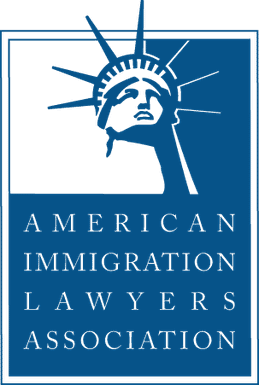On June 18, 2020, the Supreme Court of the United States of America (SCOTUS) overturned the Department of Homeland Security’s order to end the DACA program. This is highly significant for the 700,000 foreign-born persons whose deportation had been deferred under DACA. While DACA does not provide a path to citizenship for them, this decision by our highest court means that they are not at risk of immediate deportation to their countries of origin.
SCOTUS: It’s Not About DACA’s Legality, But The Legality of the DHS Decision
In DEPARTMENT OF HOMELAND SECURITY ET AL. v. REGENTS OF THE UNIVERSITY OF CALIFORNIA ET AL. (decided on June 18, 2020), SCOTUS delivered a major blow to the current Administration’s effort to deport children of immigrants who illegally entered the country with their parents. These children (most of whom are now adults with children of their own) had received a renewable two-year deferment of their deportation under the 2012 DACA (Deferred Action For Childhood Arrivals) program.
The current Administration sought to end the DACA program via an order by the Acting Homeland Security Secretary, based on the Attorney-General’s opinion that the program was unlawful. In response, Universities with students of DACA status (such as the University of California) became co-plaintiffs with the NAACP against the DHS. Note: the DACA program was created during the Obama Presidency as an administrative program, and is not a piece of legislation in and of itself.
SCOTUS held that the DHS Acting Secretary’s rescission (a legal word for rolling back or termination) of the DACA program was unlawful. It’s worth noting that SCOTUS did not address the DACA program’s legality per se, thereby avoiding all consideration about whether DACA should exist in the first place. Instead, SCOTUS focused on the DHS Acting Secretary’s decision to end the program. The Court deemed it unlawful, finding that it violated the Administrative Procedure Act (APA), which requires that administrative actions or decisions by government officials are to be reached only after a proper consideration of important factors.
In the eyes of the majority of the court (5-4, with Chief Justice Roberts writing the Court’s judgment), the DHS had failed to meet this APA requirement when deciding to terminate the DACA program. There was no question of the DHS’ right to rescind DACA before the Court; the only question was whether it had done so with due regard to a detailed analysis of the impact of rescission, as required by the APA.
The APA is perhaps one of the least known pieces of legislation amongst Americans even as it has far-reaching application in our lives. Where legislation by Congress is silent on specifics, the APA gives discretion to government officials to make rules, regulations and decisions. Such decisions have immediate, drill-down effect on our daily lives. The APA also sets forth the procedures by which federal agencies are accountable to the public.
By not considering the important aspects of her decision to end the DACA program (mainly, the practical impact of deportation on Dreamers and their US-born children’s lives), the DHS Acting Secretary had not acted rightly when viewed in the light of what the APA required of all civil servants.
Judicial Review of Civil Service Actions Reaffirmed
The other noteworthy finding in this decision was the majority’s conclusion that SCOTUS had “judicial review” over the matter. This is important because when SCOTUS decides that judicial review is applicable, it has the power to declare a piece of legislation — or administrative or executive action or ruling (in this case, the DHS decision to terminate the DACA program) — as being in conflict with the Constitution or other existing law. Judicial Review is the crux of SCOTUS’ power; it serves as the ultimate check-and-balance in our system of government.
The DHS had argued in the lower courts that there was no place for judicial review, and if SCOTUS had accepted this, the DHS order to rescind DACA would have remained in place, without having to consider whether the rescission was in itself legal. Instead, the majority of SCOTUS found that ending the DACA program was not simply a matter of administrative procedure i.e. a “non-enforcement policy”. Instead, terminating DACA would have substantial and very real impact on a specific class/group of people (the Dreamers), thereby creating a strong reason for judicial review. The DHS Acting Secretary’s administrative decision to rescind the program without a real consideration of the ending of deferral of deportation was a wrongful application of her powers granted by the APA.
As Chief Justice Roberts pointed out, the deferral of deportation (“forbearance”) is the centerpiece of DACA; failure by the DHS to give it due consideration amounted to faulty decision-making. In fact, Roberts termed the decision “arbitrary and capricious” when the DHS failed to show any evidence of detailed consideration as regards the impact of removing this protection from Dreamers. The DHS presented no evidence to show it considered the impact of dismantling of the lives of Dreamers who had started tens of thousands of businesses in the US, embarked on careers in various sectors, and whose 200,000 children were US-born. Taken together, the interests of these people were “reliance interests” which the DHS had ignored when handing down its decision to end the DACA program.
To sum up SCOTUS’ majority view, the Court addressed “only whether the agency complied with the procedural requirement that it provide a reasoned explanation for its action. Here the agency failed to consider the conspicuous issues of whether to retain forbearance and what if anything to do about the hardship to DACA recipients. That dual failure raises doubts about whether the agency appreciated the scope of its discretion or exercised that discretion in a reasonable manner. The appropriate recourse is therefore to remand to DHS so that it may consider the problem anew.” (quote from actual SCOTUS judgement).
What Next Re DACA?
SCOTUS’ remand (return of the matter) to DHS to consider the problem anew is an opening to the DHS to re-attempt ending the DACA program, this time with particular care to meet all APA requirements of due consideration of all important facts and consequences.
For now, the Dreamers have some respite. The impact of SCOTUS’s decision is deeply meaningful for the 700,000 people in the DACA program. Known colloquially as “Dreamers”, these individuals are authorized to study and work in the US, and in some cases also receive Medicare and Social Security benefits. Above all, they enjoy a deferral of their deportation back to their countries of origin (hence the words “deferred action”). The deferral of deportation can be renewed, effectively providing Dreamers with the time they need to complete schooling and work, with a view to building a life in the US.
While DACA does not provide a path to permanent residency or citizenship, the ability to be legally employed makes possible employer-sponsored permanent residency. With this decision, SCOTUS has safeguarded the status of Dreamers, at least for the time being.
Update (July 28, 2020): The DHS/USCIS announced that it would continue to reject all new and pending DACA requests and associated employment authorization applications. It also announced that it would reduce the renewal of DACA and work authorization to one year (down from two years). As regards traveling out of the United States, the USCIS stated that it will only grant advance parole in rare instances, based on its discretion and limited specific situations (e.g. urgent care and well-being of minor child of DACA recipient).
. . . . .





